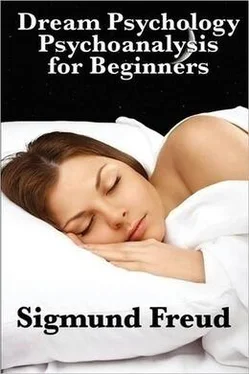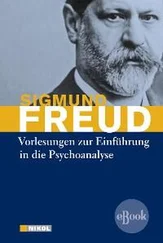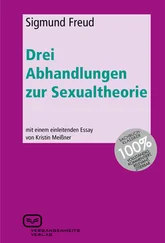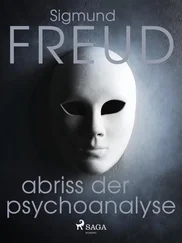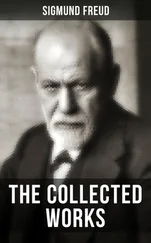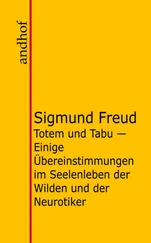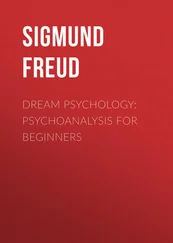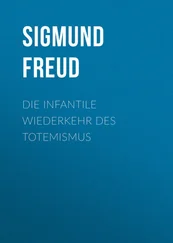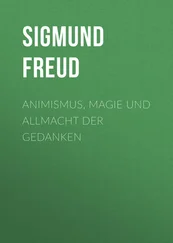Sigmund Freud - Dream Psychology
Здесь есть возможность читать онлайн «Sigmund Freud - Dream Psychology» весь текст электронной книги совершенно бесплатно (целиком полную версию без сокращений). В некоторых случаях можно слушать аудио, скачать через торрент в формате fb2 и присутствует краткое содержание. Год выпуска: 2014, Издательство: epubBooks Classics, Жанр: Психология, на английском языке. Описание произведения, (предисловие) а так же отзывы посетителей доступны на портале библиотеки ЛибКат.
- Название:Dream Psychology
- Автор:
- Издательство:epubBooks Classics
- Жанр:
- Год:2014
- ISBN:нет данных
- Рейтинг книги:3 / 5. Голосов: 1
-
Избранное:Добавить в избранное
- Отзывы:
-
Ваша оценка:
- 60
- 1
- 2
- 3
- 4
- 5
Dream Psychology: краткое содержание, описание и аннотация
Предлагаем к чтению аннотацию, описание, краткое содержание или предисловие (зависит от того, что написал сам автор книги «Dream Psychology»). Если вы не нашли необходимую информацию о книге — напишите в комментариях, мы постараемся отыскать её.
Dream Psychology — читать онлайн бесплатно полную книгу (весь текст) целиком
Ниже представлен текст книги, разбитый по страницам. Система сохранения места последней прочитанной страницы, позволяет с удобством читать онлайн бесплатно книгу «Dream Psychology», без необходимости каждый раз заново искать на чём Вы остановились. Поставьте закладку, и сможете в любой момент перейти на страницу, на которой закончили чтение.
Интервал:
Закладка:
"Flectere si nequeo superos, Acheronta movebo."
At any rate the interpretation of dreams is the via regia to a knowledge of the unconscious in the psychic life.
In following the analysis of the dream we have made some progress toward an understanding of the composition of this most marvelous and most mysterious of instruments; to be sure, we have not gone very far, but enough of a beginning has been made to allow us to advance from other so–called pathological formations further into the analysis of the unconscious. Disease—at least that which is justly termed functional—is not due to the destruction of this apparatus, and the establishment of new splittings in its interior; it is rather to be explained dynamically through the strengthening and weakening of the components in the play of forces by which so many activities are concealed during the normal function. We have been able to show in another place how the composition of the apparatus from the two systems permits a subtilization even of the normal activity which would be impossible for a single system.
IX
The Unconscious and Consciousness—reality
On closer inspection we find that it is not the existence of two systems near the motor end of the apparatus but of two kinds of processes or modes of emotional discharge, the assumption of which was explained in the psychological discussions of the previous chapter. This can make no difference for us, for we must always be ready to drop our auxiliary ideas whenever we deem ourselves in position to replace them by something else approaching more closely to the unknown reality. Let us now try to correct some views which might be erroneously formed as long as we regarded the two systems in the crudest and most obvious sense as two localities within the psychic apparatus, views which have left their traces in the terms "repression" and "penetration." Thus, when we say that an unconscious idea strives for transference into the foreconscious in order later to penetrate consciousness, we do not mean that a second idea is to be formed situated in a new locality like an interlineation near which the original continues to remain; also, when we speak of penetration into consciousness, we wish carefully to avoid any idea of change of locality. When we say that a foreconscious idea is repressed and subsequently taken up by the unconscious, we might be tempted by these figures, borrowed from the idea of a struggle over a territory, to assume that an arrangement is really broken up in one psychic locality and replaced by a new one in the other locality. For these comparisons we substitute what would seem to correspond better with the real state of affairs by saying that an energy occupation is displaced to or withdrawn from a certain arrangement so that the psychic formation falls under the domination of a system or is withdrawn from the same. Here again we replace a topical mode of presentation by a dynamic; it is not the psychic formation that appears to us as the moving factor but the innervation of the same.
I deem it appropriate and justifiable, however, to apply ourselves still further to the illustrative conception of the two systems. We shall avoid any misapplication of this manner of representation if we remember that presentations, thoughts, and psychic formations should generally not be localized in the organic elements of the nervous system, but, so to speak, between them, where resistances and paths form the correlate corresponding to them. Everything that can become an object of our internal perception is virtual, like the image in the telescope produced by the passage of the rays of light. But we are justified in assuming the existence of the systems, which have nothing psychic in themselves and which never become accessible to our psychic perception, corresponding to the lenses of the telescope which design the image. If we continue this comparison, we may say that the censor between two systems corresponds to the refraction of rays during their passage into a new medium.
Thus far we have made psychology on our own responsibility; it is now time to examine the theoretical opinions governing present–day psychology and to test their relation to our theories. The question of the unconscious, in psychology is, according to the authoritative words of Lipps, less a psychological question than the question of psychology. As long as psychology settled this question with the verbal explanation that the "psychic" is the "conscious" and that "unconscious psychic occurrences" are an obvious contradiction, a psychological estimate of the observations gained by the physician from abnormal mental states was precluded. The physician and the philosopher agree only when both acknowledge that unconscious psychic processes are "the appropriate and well–justified expression for an established fact." The physician cannot but reject with a shrug of his shoulders the assertion that "consciousness is the indispensable quality of the psychic"; he may assume, if his respect for the utterings of the philosophers still be strong enough, that he and they do not treat the same subject and do not pursue the same science. For a single intelligent observation of the psychic life of a neurotic, a single analysis of a dream must force upon him the unalterable conviction that the most complicated and correct mental operations, to which no one will refuse the name of psychic occurrences, may take place without exciting the consciousness of the person. It is true that the physician does not learn of these unconscious processes until they have exerted such an effect on consciousness as to admit communication or observation. But this effect of consciousness may show a psychic character widely differing from the unconscious process, so that the internal perception cannot possibly recognize the one as a substitute for the other. The physician must reserve for himself the right to penetrate, by a process of deduction, from the effect on consciousness to the unconscious psychic process; he learns in this way that the effect on consciousness is only a remote psychic product of the unconscious process and that the latter has not become conscious as such; that it has been in existence and operative without betraying itself in any way to consciousness.
A reaction from the over–estimation of the quality of consciousness becomes the indispensable preliminary condition for any correct insight into the behavior of the psychic. In the words of Lipps, the unconscious must be accepted as the general basis of the psychic life. The unconscious is the larger circle which includes within itself the smaller circle of the conscious; everything conscious has its preliminary step in the unconscious, whereas the unconscious may stop with this step and still claim full value as a psychic activity. Properly speaking, the unconscious is the real psychic; its inner nature is just as unknown to us as the reality of the external world, and it is just as imperfectly reported to us through the data of consciousness as is the external world through the indications of our sensory organs .
A series of dream problems which have intensely occupied older authors will be laid aside when the old opposition between conscious life and dream life is abandoned and the unconscious psychic assigned to its proper place. Thus many of the activities whose performances in the dream have excited our admiration are now no longer to be attributed to the dream but to unconscious thinking, which is also active during the day. If, according to Scherner, the dream seems to play with a symboling representation of the body, we know that this is the work of certain unconscious phantasies which have probably given in to sexual emotions, and that these phantasies come to expression not only in dreams but also in hysterical phobias and in other symptoms. If the dream continues and settles activities of the day and even brings to light valuable inspirations, we have only to subtract from it the dream disguise as a feat of dream–work and a mark of assistance from obscure forces in the depth of the mind ( cf. the devil in Tartini's sonata dream). The intellectual task as such must be attributed to the same psychic forces which perform all such tasks during the day. We are probably far too much inclined to over–estimate the conscious character even of intellectual and artistic productions. From the communications of some of the most highly productive persons, such as Goethe and Helmholtz, we learn, indeed, that the most essential and original parts in their creations came to them in the form of inspirations and reached their perceptions almost finished. There is nothing strange about the assistance of the conscious activity in other cases where there was a concerted effort of all the psychic forces. But it is a much abused privilege of the conscious activity that it is allowed to hide from us all other activities wherever it participates.
Читать дальшеИнтервал:
Закладка:
Похожие книги на «Dream Psychology»
Представляем Вашему вниманию похожие книги на «Dream Psychology» списком для выбора. Мы отобрали схожую по названию и смыслу литературу в надежде предоставить читателям больше вариантов отыскать новые, интересные, ещё непрочитанные произведения.
Обсуждение, отзывы о книге «Dream Psychology» и просто собственные мнения читателей. Оставьте ваши комментарии, напишите, что Вы думаете о произведении, его смысле или главных героях. Укажите что конкретно понравилось, а что нет, и почему Вы так считаете.
